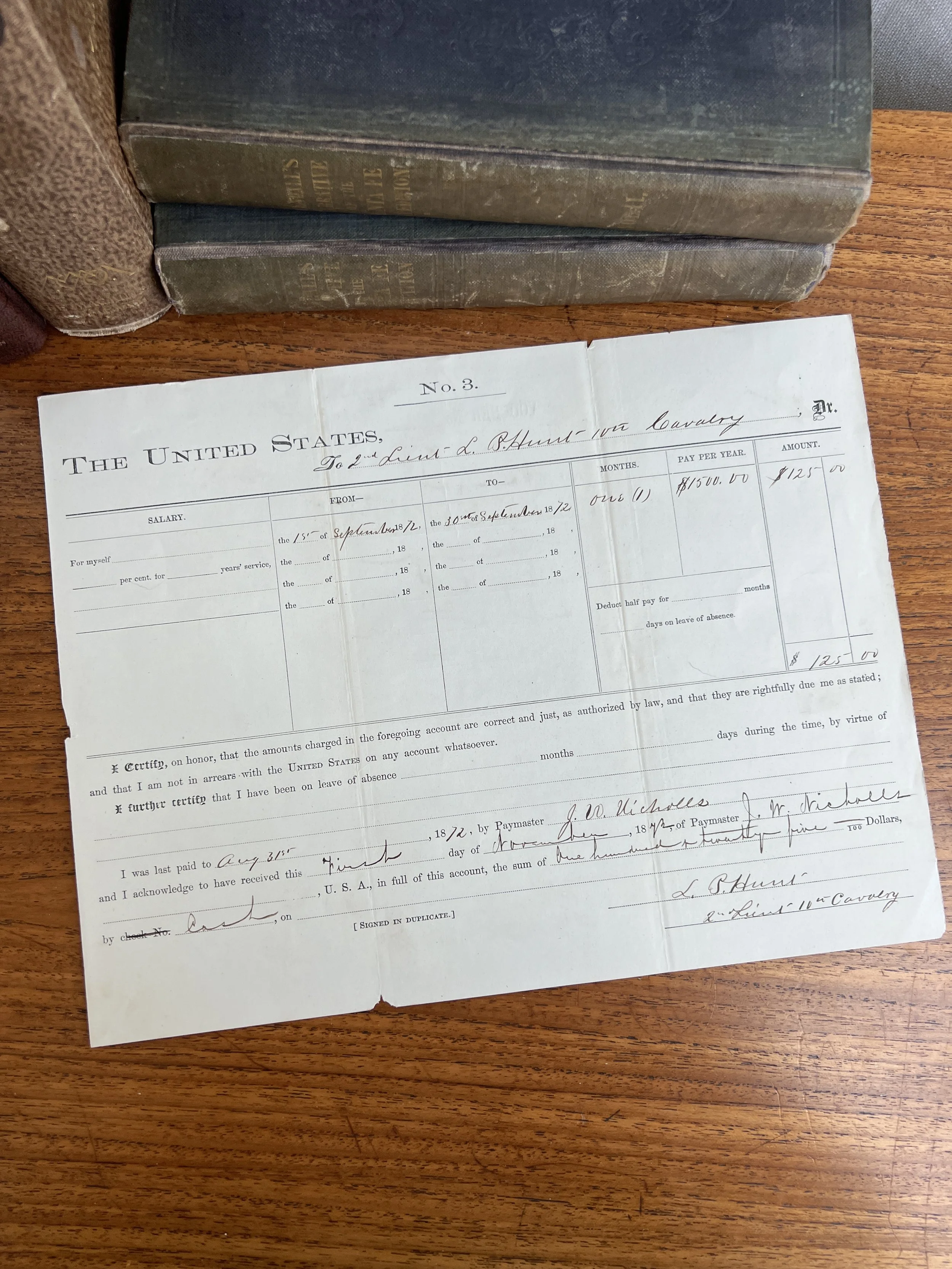1813 Court Document Signed by Moses Austin
DESCRIPTIONThis Moses Austin document showcases his signature with crisp clarity and a bold flourished underline.
In beautiful condition, this document is an official court document from 1813 and retains its neat and clear-cut script.
History & Context below.
DETAILS & MEASUREMENTSMeasures 8" width x 13" height
Beautiful antique condition, with aged tone to the paper and some smoothed original folds
Signatures crisp & clear
Court document from St. Genevieve, MO
Dated June 22, 1813
DESCRIPTIONThis Moses Austin document showcases his signature with crisp clarity and a bold flourished underline.
In beautiful condition, this document is an official court document from 1813 and retains its neat and clear-cut script.
History & Context below.
DETAILS & MEASUREMENTSMeasures 8" width x 13" height
Beautiful antique condition, with aged tone to the paper and some smoothed original folds
Signatures crisp & clear
Court document from St. Genevieve, MO
Dated June 22, 1813
DESCRIPTIONThis Moses Austin document showcases his signature with crisp clarity and a bold flourished underline.
In beautiful condition, this document is an official court document from 1813 and retains its neat and clear-cut script.
History & Context below.
DETAILS & MEASUREMENTSMeasures 8" width x 13" height
Beautiful antique condition, with aged tone to the paper and some smoothed original folds
Signatures crisp & clear
Court document from St. Genevieve, MO
Dated June 22, 1813
➼ History & Context
Father of the famous Stephen F. Austin, Moses Austin was the initial instigator of the migration and anglo-saxon settlement of the Texan area of Mexico. He received the empresario grant from Spain in 1820 but died before he could fulfill his plan, passing it on to his son.
Born in 1761 in Connecticut, Moses Austin moved to Philadelphia with his brother when he was 23 to open a dry goods store, quickly expanding to a second store in Virginia. After marrying into an affluent iron mining family – he and Mary Brown had four children, the second of which was Stephen – Moses Austin bought himself and his brother an iron mine in Wythe County, VA. Known as the “Lead King” and growing the village called Austinville around the mine, Moses nevertheless lost everything when the mine failed.
Skipping out on his debts and the threat of imprisonment by leaving for the Missouri area – then part of Spanish Louisiana – he also created a rift with his brother. By swearing allegiance to the Spanish Crown and promising to settle the area with anglo-saxon families, Moses Austin was given his first land grant in 1798. When the United States bought the area in the Louisiana Purchase in 1803, Moses founded the Bank of St. Louis. Sadly that, too, failed in the Panic of 1819 and he lost his fortune yet again. And yet again, he turned to Spain.
Traveling to San Antonio to ask for a second empresario grant to now bring more families to the Texas area for Spain, his request was granted in 1821. Moses then fell ill and died on his return to Missouri, just in time to ask his son Stephen to continue his plan to go to Texas and start the journey to the Republic of Texas and then statehood.













